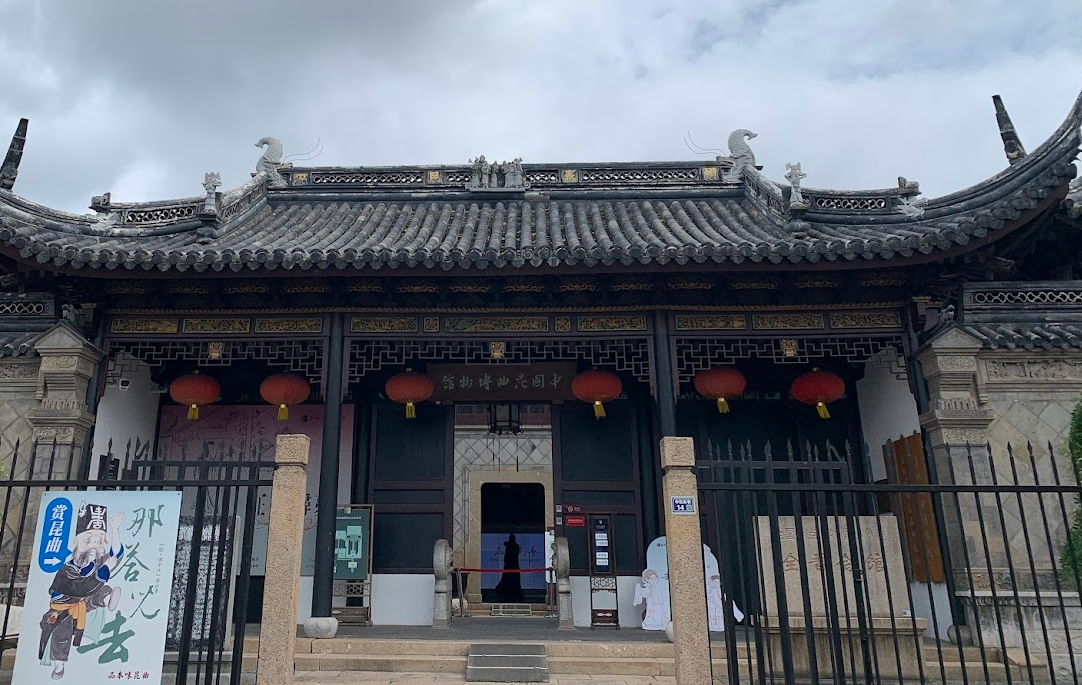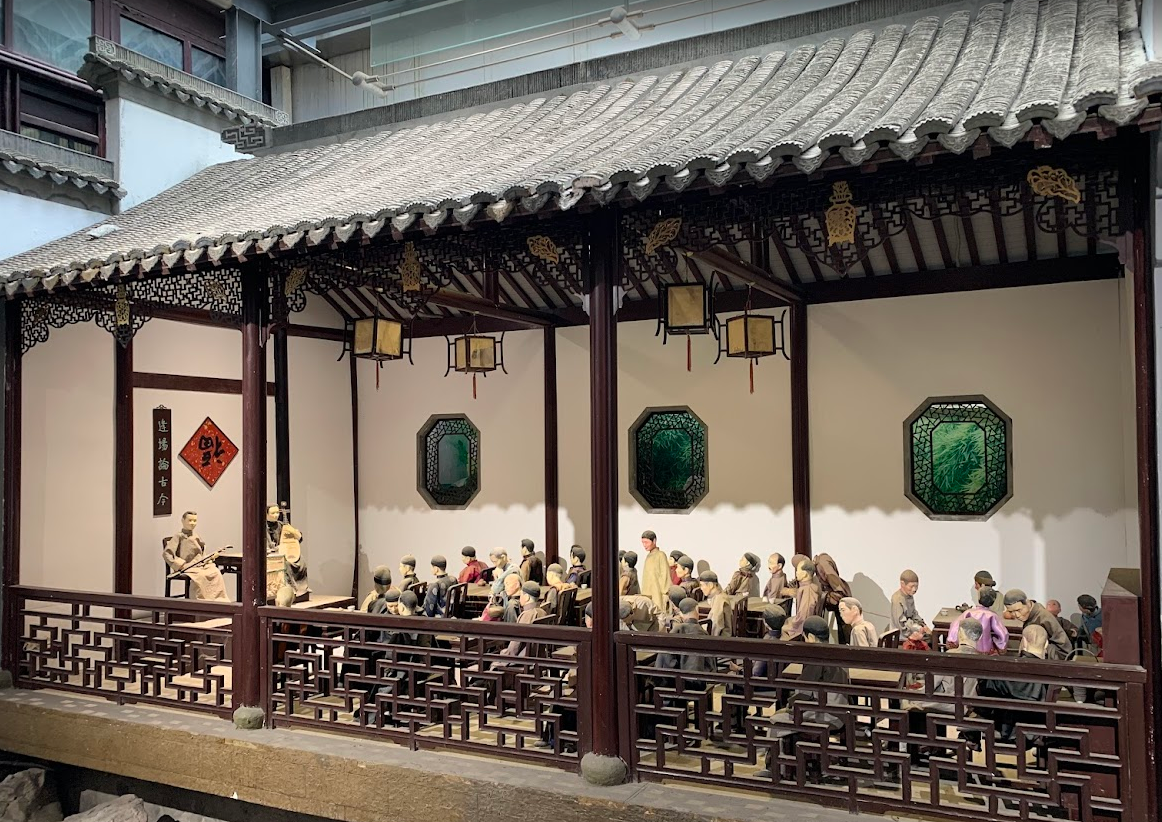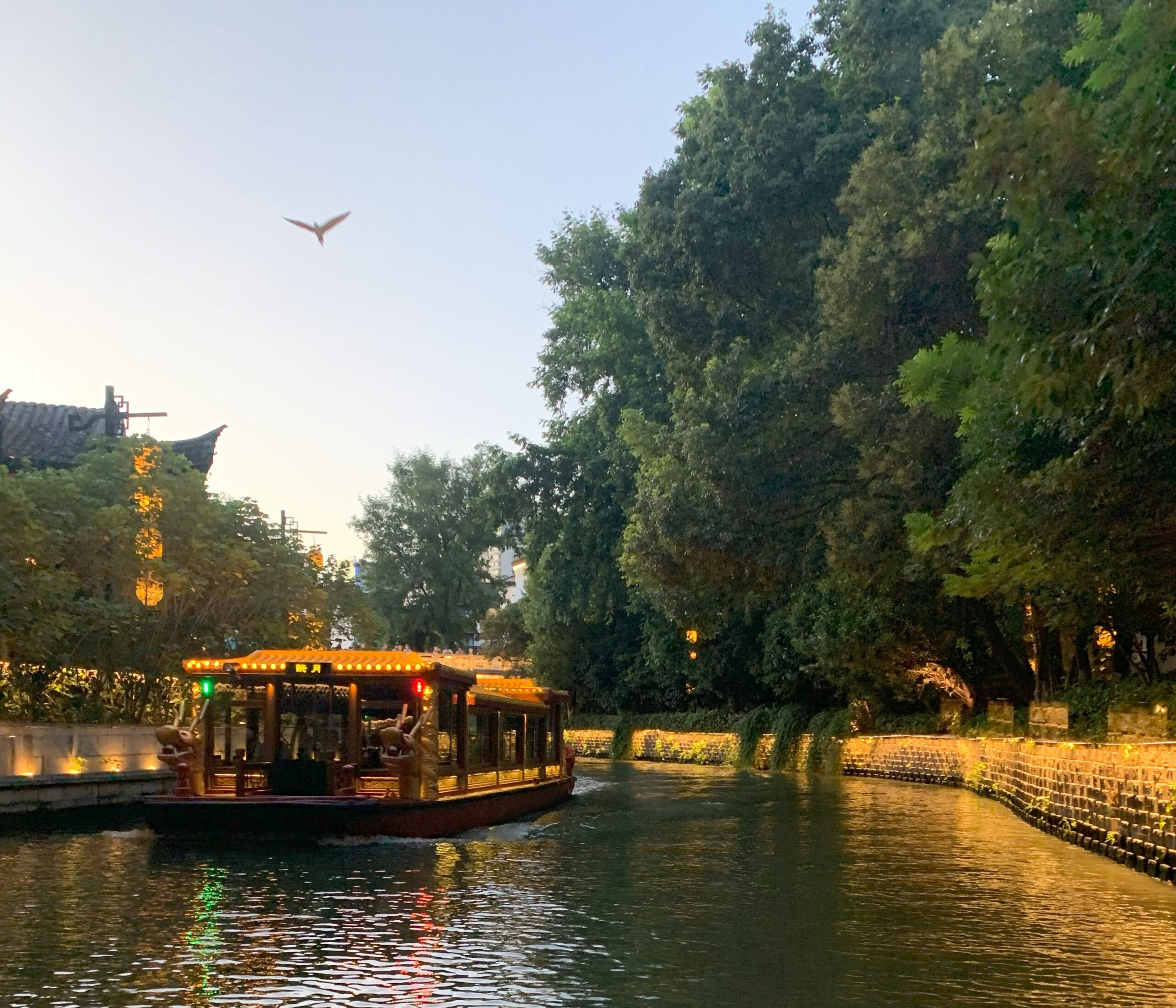《水袖不是衣裳,而是“情不知所起,一往而情深”的梦》——苏州昆曲博物馆
在苏州昆曲博物馆,我站在《昆剧传世演出珍本全编》前,轻声念过一卷卷剧名,不是来看展,而是为唤醒沉睡的节拍。魏良辅的像静立,正始元音无声回荡;汤显祖的梦仍在牡丹亭里飘摇。戏服垂落如尾音,曲谱静卧如心跳,我以楚辞的湘音对话昆曲的古声。昆曲,不是遗产,而是一场尚未唱完的呼吸。At the Kunqu Opera Museum in Suzhou, I stood before the Complete Edition of Kunqu Masterpieces, softly reading their titles— not as a visitor, but to awaken rhythms long asleep. The statue of Wei Liangfu keeps silent, the primal tones still echo; Tang Xianzu’s dream drifts within the Peony Pavilion. Costumes hang like lingering notes, scores lie still like heartbeats, and with the voices of the Chu Ci I answered the ancient sounds of Kunqu. Kunqu is not heritage to observe—it is a breath unfinished, still singing.



